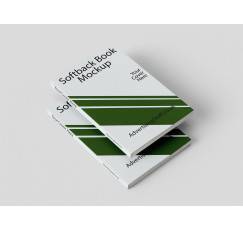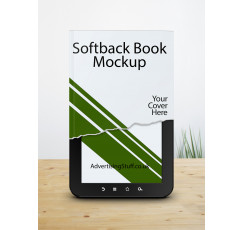How Should I Market My Book
What do I have to do to market my book effectively?
Marketing your book effectively involves a combination of strategies to build awareness, attract readers, and ultimately drive sales. Here’s a breakdown of some key tactics you can use to market your book:
1. Create a Strong Online Presence
- Website or Landing Page: Having a professional website or landing page for your book is essential. This gives potential readers a place to learn more about the book, read reviews, and find links to purchase. Make sure it's easy to navigate and includes a compelling call to action (e.g., "Buy Now").
- Social Media: Use platforms like Instagram, Twitter, Facebook, and TikTok to connect with potential readers. Share snippets of your book, behind-the-scenes looks at your writing process, and any updates. Platforms like Instagram and TikTok are highly visual, so use mockups or book covers to capture attention.
- Email List: Building an email list is one of the most valuable marketing tools. Offer a free chapter or exclusive content in exchange for people’s email addresses. Keep them engaged by sending updates, sneak peeks, and exclusive promotions.
2. Leverage Book Reviewers and Influencers
- Book Bloggers and Reviewers: Reach out to book bloggers, reviewers, and platforms like Goodreads to get reviews for your book. Positive reviews are social proof that can persuade others to buy.
- Influencers: Identify influencers or bookstagrammers (Instagram users who post about books) in your genre who might be willing to review or promote your book. Even micro-influencers with a smaller but engaged following can help get the word out.
3. Book Launch Strategy
- Pre-order Campaign: If possible, set up a pre-order campaign to create excitement before the book launches. Offer exclusive bonuses like access to a private Facebook group, signed copies, or early chapters for pre-order customers.
- Launch Event: Host a virtual or in-person book launch event. You could do a live reading, Q&A session, or even invite influencers to join in. Promote the event on social media and email to maximize attendance.
4. Utilize Paid Advertising
- Amazon Ads: If your book is on Amazon, consider using Amazon Ads to reach readers who are browsing similar genres.
- Facebook/Instagram Ads: Social media ads allow you to target specific groups, such as people who like similar authors or genres. Experiment with different types of ads, such as carousel ads (featuring multiple images of your book) or video ads (with short, compelling trailers or excerpts from your book).
- Goodreads Ads: Goodreads offers a paid advertising platform, which can be especially effective for reaching readers in your genre.
5. Utilize Book Promotion Websites
- BookBub: If you're eligible, BookBub is one of the best platforms for reaching a large audience. It can help you get your book in front of thousands of potential readers who are specifically looking for new books in your genre.
- Other Promo Sites: There are other sites like Freebooksy, BookSends, and Bargain Booksy, where you can promote discounted or free books to a large audience.
6. Networking and Partnerships
- Collaborate with Other Authors: Partnering with other authors, especially in your genre, can help you reach a broader audience. You can swap newsletters, do joint promotions, or host online events.
- Join Author Communities: Participate in author communities online, such as writing forums or Facebook groups, where you can exchange tips, network, and gain support from other authors.
7. Offer Special Promotions
- Discounts and Sales: Temporary price reductions or special promotions can create urgency and encourage readers to buy. You can also offer bundle deals (e.g., your book plus a short story or a related eBook).
- Freebies: Offering the first chapter or a short story related to your book for free can help build interest and encourage readers to buy the full book.
8. Focus on SEO (Search Engine Optimization)
- Optimize Your Website: Use SEO strategies on your website to help people find your book when they search for terms related to your genre or book’s themes. This could include blog posts, book reviews, or articles that link back to your book.
- Amazon SEO: If you're selling your book on Amazon, optimize your book’s metadata (title, keywords, description, categories) to make it easier for people to discover.
9. Engage with Your Readers
- Respond to Reviews: Engage with readers by responding to their reviews or comments, whether on Goodreads, Amazon, or social media. Positive interactions help foster a sense of community around your book.
- Join Book Clubs: Many readers belong to online book clubs (e.g., on Goodreads or Facebook). Joining or interacting with these communities can lead to organic word-of-mouth promotion.
10. Track and Adjust
- Analyze Your Results: Pay attention to how each marketing tactic performs. Which platforms are generating the most sales or engagement? Which ads are performing well? Use this data to adjust and fine-tune your strategy.
- Experiment: Try different approaches to see what resonates with your audience. If something isn’t working, don’t be afraid to pivot.
Final Thoughts:
Book marketing is an ongoing process, and it often requires a mix of strategies. Start by building a strong online presence and making sure your book is visible across various platforms. Then, leverage relationships with reviewers and influencers, utilize advertising, and create promotions to keep your book in the conversation. Most importantly, be patient and consistent—the more effort you put into marketing, the more likely your book is to reach the right readers.















